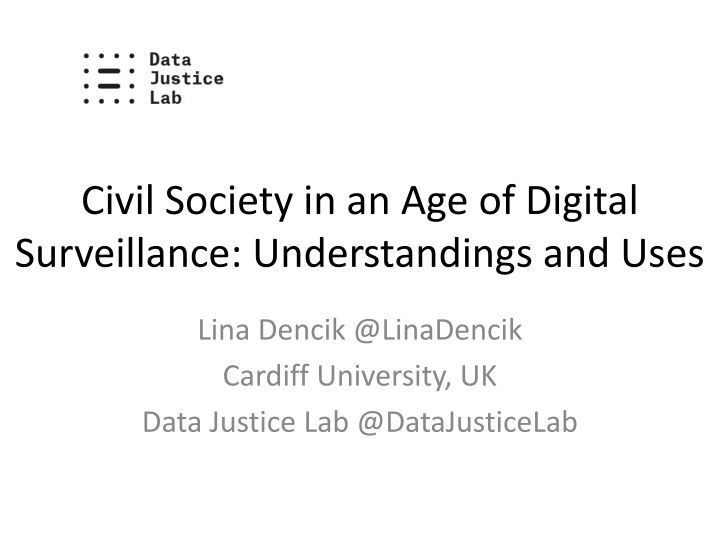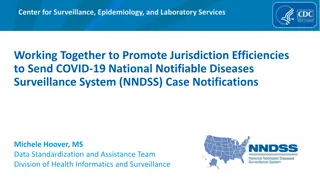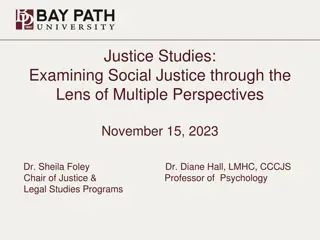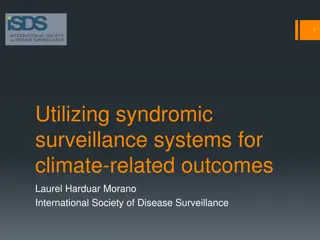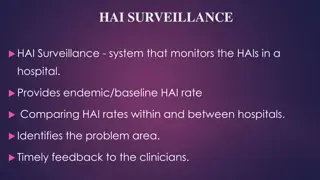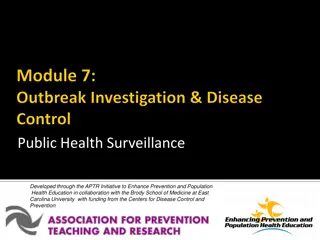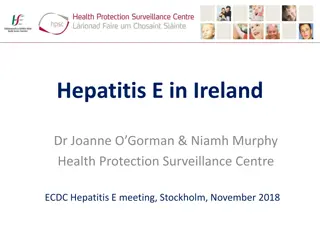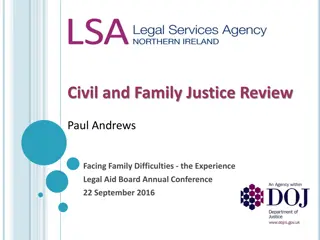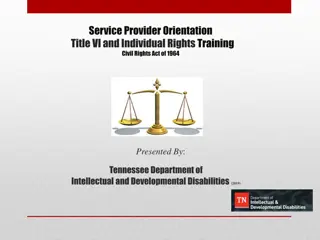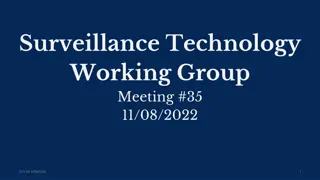Civil Society in an Age of Digital Surveillance: Data Justice Lab Research
Situated within Cardiff University, the Data Justice Lab focuses on advancing social justice in the digital age. Led by Dr. Lina Dencik and team, the lab conducts projects on data justice, citizen scoring, data policies, and more. Their work includes events, workshops, and critical data journalism training.
Download Presentation

Please find below an Image/Link to download the presentation.
The content on the website is provided AS IS for your information and personal use only. It may not be sold, licensed, or shared on other websites without obtaining consent from the author.If you encounter any issues during the download, it is possible that the publisher has removed the file from their server.
You are allowed to download the files provided on this website for personal or commercial use, subject to the condition that they are used lawfully. All files are the property of their respective owners.
The content on the website is provided AS IS for your information and personal use only. It may not be sold, licensed, or shared on other websites without obtaining consent from the author.
E N D
Presentation Transcript
Civil Society in an Age of Digital Surveillance: Understandings and Uses Lina Dencik @LinaDencik Cardiff University, UK Data Justice Lab @DataJusticeLab
Data Justice Lab Researching and advancing social justice in an age of datafication Lina Dencik Arne Hintz Joanna Redden Emiliano Trer Jess Brand Harry Warne Isobel Rorison Philippa Metcalf Fieke Jansen Javier Sanchez
What do we do? Public launch: March 2017 Situated within the School of Journalism, Media and Culture (JOMEC), Cardiff University, UK Directed by Dr Lina Dencik, Dr Arne Hintz, Dr Joanna Redden Expanding team (PhDs, post-docs, established scholars) Projects: DATAJUSTICE Starting Grant from European Research Council (2018-2023) Data Scores: Investigating uses of citizen scoring in public services Grant from the Open Society Foundations Data Policies: Regulatory Approaches for Data-Driven Platforms in the UK and EU (in collaboration with IT for Change) Grant from IDRC India Data Harms Record Events/workshops: First international conference on data justice May 21/22, 2018 at Cardiff University Critical data literacy workshops practitioners and civil society Critical data journalism / data justice journalism training
Structure of talk Project: Digital Citizenship in Surveillance Society: UK State-Media-Citizen relations after the Snowden leaks Project: Data Justice: Understanding datafication in relation to social justice
Technology News media Civil Society Policy Digital Citizenship and Surveillance Society: UK State- Media-Citizen Relations after the Snowden Leaks
Media coverage of Snowden & Surveillance Research questions: How have the British news media represented the Snowden leaks and digital surveillance? How does this compare with how blogs and non-traditional media report? What do journalists think about how to cover surveillance? Methods: Content analysis of press, broadcast and blog reporting Five peak moments of coverage of Snowden leaks and surveillance Interviews with journalists
Timeline of Media Coverage Snooping on World Leaders Initial Snowden Revelations David Miranda Case Embassy snooping Lee Rigby Report 400 Charlie Hebdo Aftermath 350 300 250 200 NSA Snowden GCHQ 150 100 50 0 7/8/2013 8/5/2013 9/2/2013 1/6/2014 2/3/2014 3/3/2014 6/9/2014 7/7/2014 8/4/2014 9/1/2014 1/5/2015 2/2/2015 3/2/2015 5/27/2013 6/10/2013 6/24/2013 7/22/2013 8/19/2013 9/16/2013 9/30/2013 1/20/2014 2/17/2014 3/17/2014 3/31/2014 4/14/2014 4/28/2014 5/12/2014 5/26/2014 6/23/2014 7/21/2014 8/18/2014 9/15/2014 9/29/2014 1/19/2015 2/16/2015 3/16/2015 3/30/2015 4/13/2015 12/9/2013 12/8/2014 10/14/2013 10/28/2013 11/11/2013 11/25/2013 12/23/2013 10/13/2014 10/27/2014 11/10/2014 11/24/2014 12/22/2014
Surveillance Angle Snowden personal revelations State power Surveillance Failure International relations Other Freedom of the press Mass public surveillance The Miranda case UK/US government response Whistleblowing Non-UK/US government reaction Extradition/Asylum Social media/game surveillance Government oversight Application/changes to the law Spying on governments Organised crime Counter surveillance Spying on corporations Personal online behaviour Security Services Policing Terrorism Content of Snowden leaks Personal privacy Human rights National security 0 20 40 60 80 100 120 140 160 180 200
Sources Snowden's girlfriend Think Tank David Miranda NGO Civil service/diplomat Politician Poll Other Edward Snowden documents Edward Snowden himself Expert Police Civil society group Citizen Business person/tech company Journalist/media UK spy agency US spy agency Law/judiciary 0 100 200 300 400 500 600 700 800 900 1000
Expressions of Opinions by Sources Police/Government acted unlawfully/unfairly towards Miranda Removing/ammending encryption will have strong repercussions So many suspects, IS cannot monitor all of them A public debate on privacy/IS/surveillance is needed The Police were acting in the interests of national security/their actions were Miranda case was a message of intimidation to journalists The Intelligence Services are out of control There needs to be a new code of conduct/constraints for the IS Nations have always spied on their friends and foes Partners and allies should not spy on each other The UK Govt has passed the buck from the IS onto social media companies Tech companies/IS offering huge quantities of data will result in an unmanageable Distinguishing online content and determining terrorism will be a problem Press freedom should not jeopardise national security Press freedom must be protected The Guardian is criticised The Guardian is praised The Snowden leaks are in the public interest The Snowden leaks have compromised the work of the Intelligence Services Social media/internet companies are acting sufficiently towards terror Social media/internet companies should do more to protect privacy Social media/internet companies should do more to fight terror Intelligence Services should act more on surveillance information Intelligence Services should be better funded/have more resources to fight terror Intelligence Services should be trusted and need secrecy Intelligence Services should be more transparent/accountable/receive legal reforms Personal data should not be accessed by Intelligence Services Personal data needs to be accessed by Intelligence Services We are in/moving towards a big brother/surveillance state Surveillance should not be feared if nothing to hide Surveillance is damaging to international relations Surveillance should be reduced/is unacceptable/illegal Surveillance should be increased/is acceptable/necessary Privacy must be surrendered for/balanced with national security Privacy is a human right and should be protected 0 20 40 60 80 100 120
Media coverage of Snowden & Surveillance Focus on terrorism and role of security services, not on human rights and privacy Sources: predominantly politicians Debates around surveillance are framed by elites rather than citizens Media contributed to the normalization and justification of surveillance The consequences and extent of mass surveillance for citizens are largely invisible Journalists are critical about surveillance and reporting, worried about chilling effect on press freedom Blogs, specialist and alternative media have critical coverage
Civil society: Public knowledge and activism Research questions: What is the level of public knowledge and attitudes to digital surveillance? What is the impact of the Snowden leaks on activism and advocacy? Methods: Focus groups with British public (52 participants across 10 focus groups of 3-8 people; demographic diversity across gender, age, ethnic background, income, location) Interviews with activists and campaigners (11 organisations across labour, anti-war, civil liberties, environment, community, anti-austerity)
General public Attitudes: Limited knowledge of Snowden (Meta)data collection is surveillance Concerns about lack of transparency, lack of control, how to opt out Response: Self-regulation (pragmatism, not encryption) Resignation, rather than consent Sociology of digital resignation (Draper and Turow), Surveillance Realism (Dencik)
Political activists Lack of knowledge and surveillance realism History of police infiltration Dependency on tools for organising and mobilising Online behaviour not linked to Snowden Using encryption = lack of transparency Only for radical politics surveillance keeps the mainstream in check Chilling effect Outsourcing of anti-surveillance resistance Disconnect in civil society (technology vs. social justice)
The datafied society. Refugee or Terrorist? IBM Thinks Its Software Has the Answer. Defense One When your boss is an algorithm. Financial Times Can an algorithm hurt? Polish experiences of profiling the unemployed. CIHR Machine Bias: There s software used across the country to predict future criminals. Propublica New Zealand experts warn Australia data-driven welfare abuses and brutalises . The Guardian What happens when an algorithm cuts your health care. The Verge
What is at stake? Dominant framing: efficiency / security vs. individual privacy and data protection Emerging issues: Data processes advance prediction and preemption Data processes are uneven (social sorting) Data processes are premised on power asymmetry (data profilers vs. data subjects) Data processes can discriminate and exclude
Focus of data politics and social justice Automation of social knowledge (meta-values, rationality, ideology) Democracy (transparency, accountability, due process) Political economy (corporate power, political agenda) Identity and lived experiences ( distance , else ) Social and economic rights (dislocation, alienation)
Approaches to data justice Principles (e.g. (in)visibility, anti-discrimination, (non-)engagement) Technology (e.g. fairness-by-design) Integrated social justice agenda Data justice beyond techno-legal solutionism Data as a social and economic justice issue Systemic critique alternative imaginations on the organisation of society Practical implications: Collective (beyond individual acts) Broaden framework and stakeholders Perspective (from margins)
